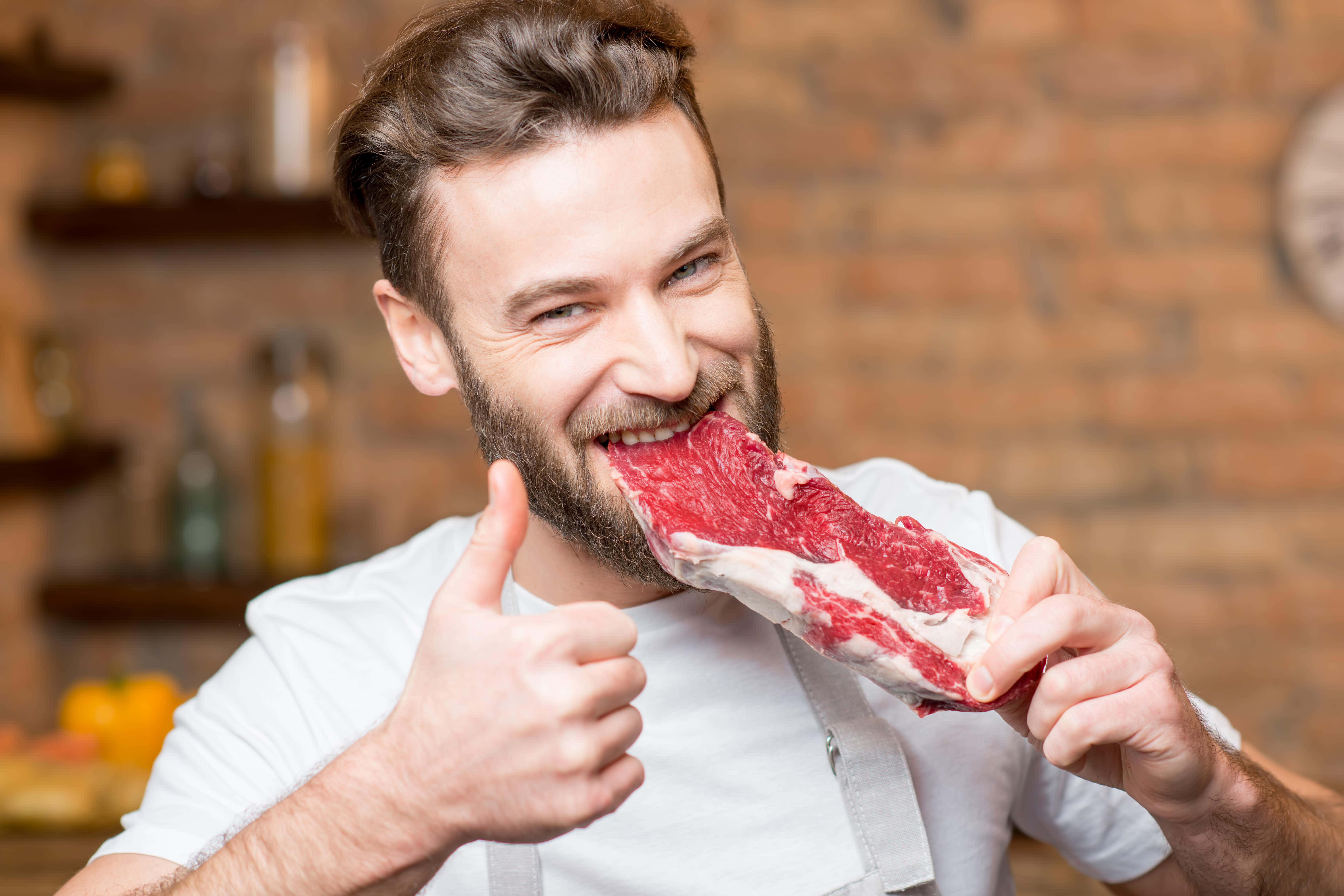What is the ‘carnivore diet’ trend and is it actually good for you?
Raw steak for breakfast and freshly cracked eggs for a snack, TikTokers are swearing by the carnivore diet. But what does it actually do to you?

Your support helps us to tell the story
From reproductive rights to climate change to Big Tech, The Independent is on the ground when the story is developing. Whether it's investigating the financials of Elon Musk's pro-Trump PAC or producing our latest documentary, 'The A Word', which shines a light on the American women fighting for reproductive rights, we know how important it is to parse out the facts from the messaging.
At such a critical moment in US history, we need reporters on the ground. Your donation allows us to keep sending journalists to speak to both sides of the story.
The Independent is trusted by Americans across the entire political spectrum. And unlike many other quality news outlets, we choose not to lock Americans out of our reporting and analysis with paywalls. We believe quality journalism should be available to everyone, paid for by those who can afford it.
Your support makes all the difference.When it comes to weird diets, TikTok is pretty notorious for spreading the word about them – and the latest iteration, the carnivore diet, is no different.
The carnivore diet tag on the video-sharing platform has over a billion views, with followers of the diet dedicating themselves to meals consisting of a lot of meat (both cooked and raw), eggs and lumps of butter.
With some content creators reporting immense fat loss and improved general wellbeing, how healthy is the carnivore diet?
The pros
“The carnivore diet, also known as the all-meat diet or zero-carb diet, is a dietary approach that involves consuming only animal products and excludes all plant-based foods,” says Dr Simon Theobalds, GP at Pall Mall Medical.
Comparable to the no-carb, protein-heavy keto diet, it has the potential to boost some much-needed macronutrients, vitamins and minerals in your diet.
“Red meat is a rich source of complete protein, providing all the essential amino acids the body needs for various functions, including building and repairing tissues,” says Theobalds.
It can also boost iron levels: “Red meat is one of the best dietary sources of heme iron, which is more easily absorbed by the body compared to non-heme iron found in plant-based foods,” he says.
“Iron is essential for transporting oxygen in the blood and supporting energy metabolism.
“Red meat is also an excellent source of vitamin B12, a nutrient mainly found in animal products. Vitamin B12 is essential for nerve function, DNA synthesis, and the formation of red blood cells.”
And it’s a good source of zinc, a mineral Theobalds says plays a vital role in immune function, wound healing, and cellular growth and repair.The cons
So far, so good. But, where does it start to be damaging?
“Red meat, particularly fatty cuts, can be high in saturated fat and cholesterol,” says Theobalds. “Consuming large amounts of saturated fat and cholesterol has been associated with an increased risk of heart disease and stroke.”

Similarly, processed meats, such as bacon, sausages, hot dogs, and deli meats, have been classified as Group 1 carcinogens by the International Agency for Research on Cancer (IARC). “This means there is strong evidence linking processed meat consumption to an increased risk of cancer,” he adds.
It could also mean when you get sick, it’s harder to get well again, as it may encourage antibiotic resistance.
“In many countries, livestock may be treated with antibiotics to promote growth or prevent disease,” Theobalds notes. “The overuse of antibiotics in meat production can contribute to antibiotic resistance, making it harder to treat bacterial infections in humans.”
Despite the nutrients you can get from animal products, this diet could still lead to certain deficiencies.
“Meat lacks essential nutrients found in plant-based foods, such as dietary fibre, certain vitamins like vitamin C, and minerals such as potassium. Long-term consumption of only meat can lead to nutrient deficiencies and related health problems,” he adds.
A varied diet will also promote a healthier gut.
“Aiming to incorporate 30 different plants into your diet each week is a great goal to have in mind,” says Anna Tebbs, registered nutritionist and head chef at Green Chef.
“Having a range of plants in your diet will ensure you are fuelling the different gut microbiomes in your body. A plant-based diet tends to be higher in prebiotics, which gives the good bacteria in your gut extra fuel, and has an anti-inflammatory effect.”
Is it worth it?
With so many people posting about and adopting this diet, is it worth the risks for the benefits it promises?
“While consuming meat can provide important nutrients, relying solely on a diet of meat and excluding other food groups may pose several risks,” says Theobalds. “A balanced diet provides essential nutrients, supports overall health, and reduces the risk of nutritional deficiencies and associated health problems.
Before making any significant dietary changes, especially one as restrictive as an all-meat diet, it’s essential to consult with a registered dietitian or healthcare professional. They can help assess your nutritional needs, provide personalised guidance, and help you develop a balanced and sustainable eating plan that aligns with your health goals.


